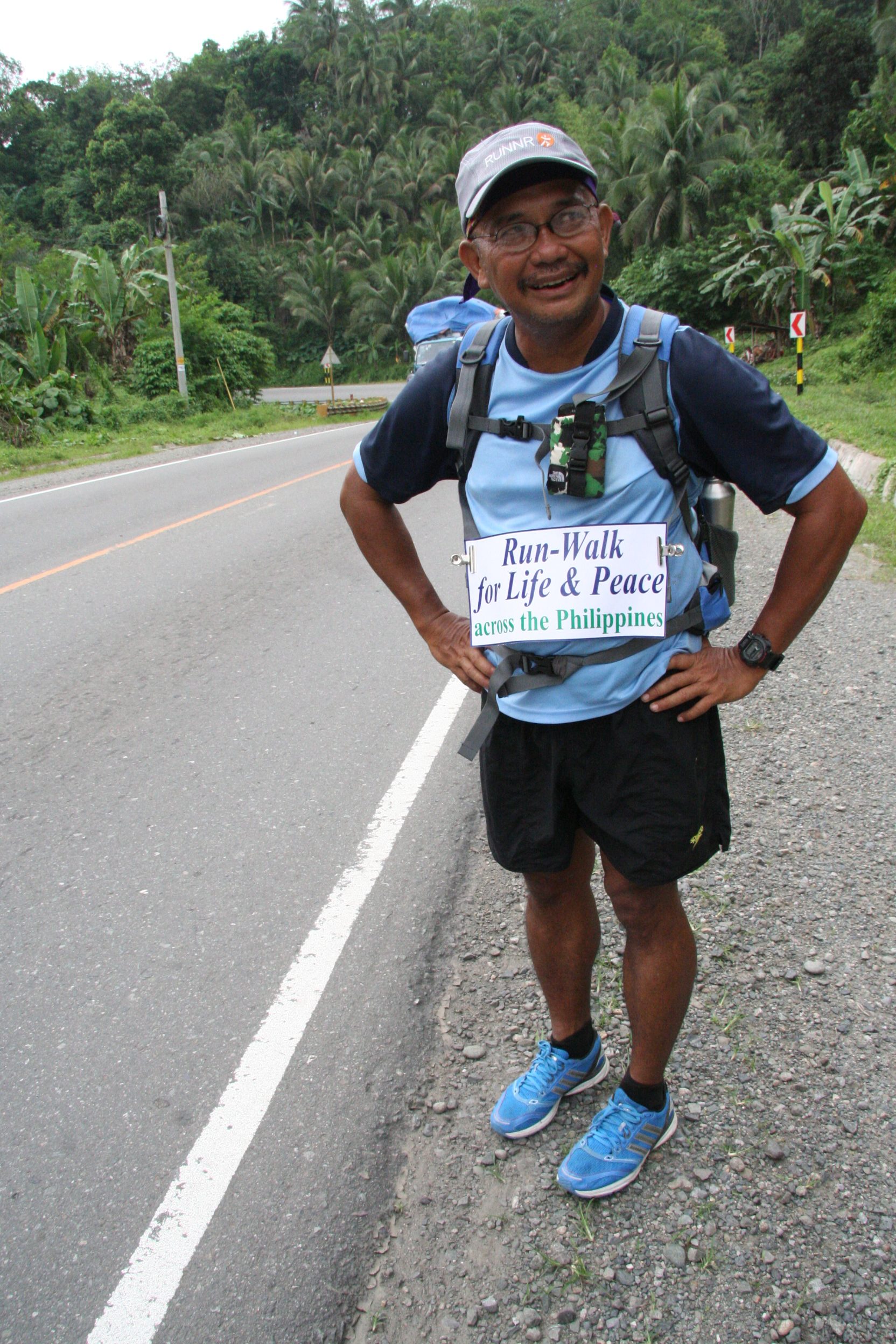SUMMARY
This is AI generated summarization, which may have errors. For context, always refer to the full article.

DAVAO, Philippines – The priest bore a tattoo on his left shoulder that was more than just ink; it was a powerful symbol of how martial rule shaped his life.
The tattoo depicted a clenched fist with the number “1081” in reference to the martial law proclamation number. It served as a daily reminder of his vow to fight against all forms of violence, embodying his enduring spirit and dedication to justice. (An earlier version of this story stated that “1081” was a prison number. This has been corrected. – Editors)
In the quiet solitude of a house in the Visayas, prominent human rights crusader and Redemptorist priest Father Amado “Picx” Picardal passed away on Wednesday, May 29. He was 69 years old.
His death was first confirmed by Father Edilberto Cepe, the provincial superior of the Redemptorist Province of Cebu. As the Redemptorists mourn the loss of a fearless advocate, the story of Father Picardal’s life continues to inspire and resonate with many.
Picardal’s journey was marked by so much dedication to justice and human rights that he became the first to document the so-called Davao Death Squad (DDS) killings when ex-president Rodrigo Duterte was the mayor in the Southern Mindanao region. Such commitment defined his advocacy and his life’s work, from entering the priesthood to his final years.
In his final days, Picardal confided to close friends that he was prepared to testify before the International Criminal Court (ICC) regarding the vigilante killings in Davao City during the tenure of Duterte.
One of them said Picardal had likely already submitted crucial documents and files to the ICC before his final moments.
Throughout his life, Picardal faced numerous threats and dangers. He was arrested and placed behind bars because he was a vocal critic of the dictatorship of the late strongman Ferdinand E. Marcos.
Decades later, his outspoken criticism of Duterte’s brutal leadership, both as mayor of Davao and later as president, drew the ire of the powers that be.
In one interview with this reporter, he recalled the time when Duterte cussed at him. “Duterte hurled invectives at me on his regular TV program,” he said.

When he was rector of the Redemptorist Church in Davao, he co-founded the Coalition Against Summary Execution (CASE), a consortium of non-governmental organizations advocating for human rights. The coalition actively opposed the extrajudicial killings of suspected criminals, a campaign that intensified nationwide under Duterte’s presidency.
Despite the constant threats to his life, Picardal never wavered. He was subsequently forced to move to the Visayas due to security concerns, yet even there, he suspected surveillance and potential threats.
His superiors, alarmed for his safety, relocated him several times. Eventually, he was assigned to the Vatican, but distance did not silence him. His journals, notes, and blog entries continued to voice his opposition to Duterte’s bloody war on drugs.
During the Duterte administration, Picardal, also known as the “biking priest,” embarked on a long-distance cycling journey to send a political statement regarding critical issues such as peace and environmental conservation.

Picardal also walked and jogged, long distance, to draw attention to the need for peace deals with rebels. His journey from Davao City to Aparri, Cagayan, spanned 2,000 kilometers over 57 days, with numerous stopovers to advocate for peace talks.
The priest’s commitment to justice was deeply personal. In one of his blog entries, he recounted his arrest, torture, and imprisonment during martial law in 1973. At just 18 years old, he experienced the brutality of the first Marcos regime, an ordeal that fueled his lifelong vow: “Never forget, never again.”
Father Eric Sevencruz, the media liaison of the Redemptorist Province of Cebu, said Picardal was celebrating his 47th anniversary as a priest on the day of his death. He was found lifeless at his hermitage house, a place he planned to retire. – Rappler.com
Add a comment
How does this make you feel?











There are no comments yet. Add your comment to start the conversation.